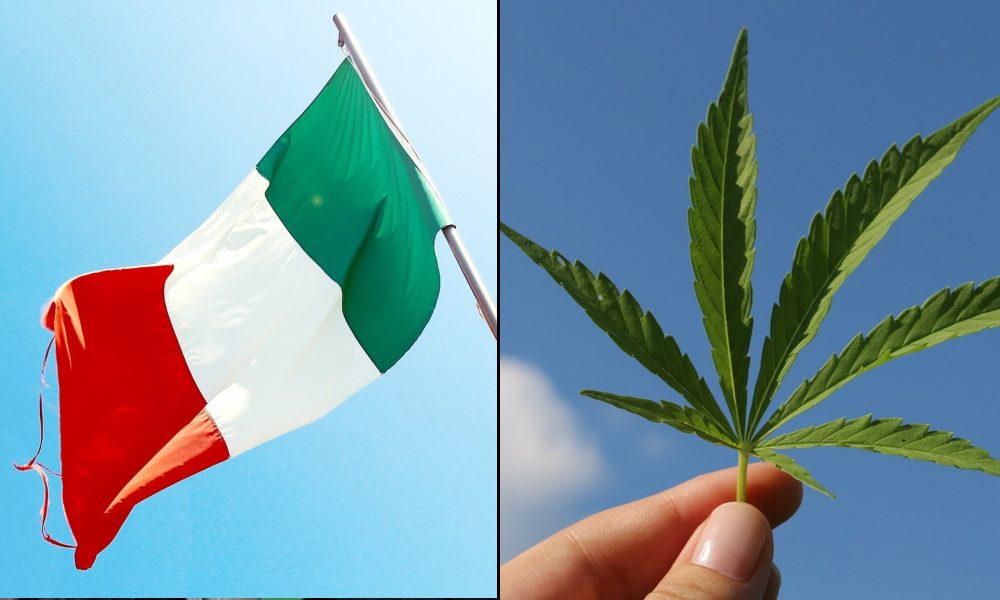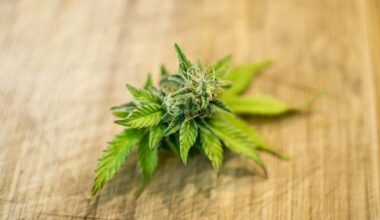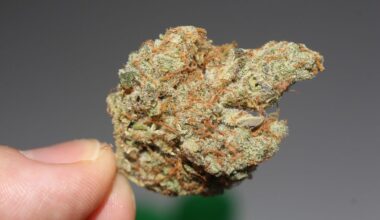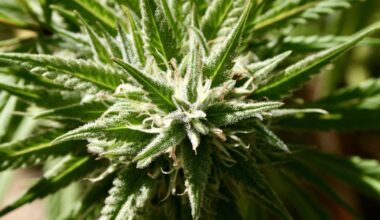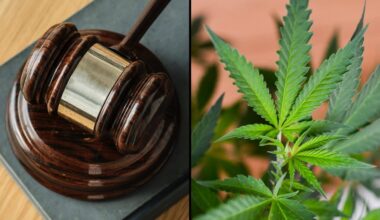The New York Senate on Tuesday approved a bill to provide provisional marijuana cultivator and processor licenses for existing hemp businesses that take certain steps to promote equity in the emerging industry.
Sponsored by Sen. Michelle Hinchey (D), the legislation aims to simultaneously expedite the process of standing up New York’s adult-use market while supporting efforts to reach ambitious equity goals with respect to cannabis business participation. It passed in a 50-13 vote.
Meanwhile, the Assembly is scheduled to take up an identical companion measure on Wednesday, meaning the legislation could be sent to the governor’s desk imminently. Assembly Majority Leader Crystal Peoples-Stokes (D), who took the lead on the adult-use legalization bill that was enacted last year, is sponsoring her chamber’s version of the licensing bill.
“Last year, with the historic passage of the MRTA, New York set the foundation for a legal cannabis industry predicated on social equity, inclusion, and ensuring that economic success stays local,” Hinchey said in a press release. “To achieve these goals and create a truly circular economy, we need New York farmers to begin the growing process now so that when cannabis dispensaries open, we can fill shelves with quality New York-grown products.”
“Our existing hemp growers, who have been some of the hardest hit by market fluctuations, already have the knowledge base to meet this need, and I’m proud to sponsor legislation to help them obtain conditional licenses, which will allow New York to implement its cannabis program faster,” the senator said.
As it stands, adults 21 and older can possess and publicly consume cannabis, as well as gift marijuana to other adults as long as they aren’t being compensated. But regulators are still finalizing licensing rules, and there are currently no retailers that are authorized to sell cannabis for adult use in the state.
The justification section for the new bill says that it is “necessary to allow for a timely establishment of the adult-use cannabis market by allowing for the temporary conditional cultivation and processing of adult-use cannabis as soon as is feasible.”
Unlike a separate temporary licensing bill that was filed in the Senate last year, this one puts a strong emphasis on equity objectives.
Not only would prospective conditional license holders need to have been authorized by the state Department of Agriculture to grow hemp as of December 31, 2021—and have grown the crop for two of the past four years—they would also be required to “participate in an environmental sustainability program and a social equity mentorship program.”
—
Marijuana Moment is already tracking more than 1,000 cannabis, psychedelics and drug policy bills in state legislatures and Congress this year. Patreon supporters pledging at least $25/month get access to our interactive maps, charts and hearing calendar so they don’t miss any developments.![]()
Learn more about our marijuana bill tracker and become a supporter on Patreon to get access.
—
“Such mentorship program shall be directed to train individuals interested in becoming licensed cultivators and shall leverage remote and in-person mentees with experience in agriculture business management, sustainable cannabis cultivation, and best practices,” the bill text says, adding that mentees must fit within the established definition of an equity applicant.
That currently includes people from communities disproportionately impacted by prohibition, minority- and women-owned businesses, distressed farmers and service-disabled veterans. However, other bills have been introduced in recent months that are aimed as expanding the equity qualifications to include other groups such as gay, lesbian, bisexual, transgender and non-binary people.
Further, the cannabis bill requires conditional licensees to “enter into a labor peace agreement with a bona-fide labor organization that is actively engaged in representing or attempting to represent the applicant’s employees within six months of licensure.”
Hinchey said that her legislation—which is also cosponsored by the chamber’s champion for last year’s adult-use legalization bill, Sen. Liz Krueger (D)—will “help advance the critical social equity goals laid out in the MRTA by establishing mentorship programs that bring more BIPOC growers into the fold to strengthen diversity in agriculture and deliver opportunities for all who want to be part of this exciting space.”
The Office of Cannabis Management (OCM) would be able to issue the conditional licenses up until June 1, 2023, after which point businesses would be required to apply under a standard adult-use license. The conditional licenses would be invalidated in their entirety as of June 30, 2024.
Conditional cultivator licensees would be authorized to “minimally process and distribute cannabis products, provided that such final products shall be in the form of cannabis flower,” the bill says.
“This bill will be particularly helpful in providing social equity retail dispensary licensees with products on day one of retail sales,” the justification section says. “Additionally, this bill will facilitate interested social equity cultivators and processors with a pathway to licensure through invaluable experience and knowledge gained by partnering with current experienced hemp cultivators and processors through a social equity mentorship program.”
“This bill will ultimately strengthen the social equity program, and assist in achieving the goal that fifty percent of all licenses be awarded to social equity applicants,” it says.
For those who are awarded a conditional license and maintain good standing in compliance with the rules and requirements, those provisional cultivators and processors will “be eligible to apply for and receive an adult-use cultivation license, provided the licensee can meet all requirements of the new license.”
“Such a licensee will receive, at minimum, an adult-use cultivator license for the size of flowering canopy that they were licensed to grow pursuant to their conditional adult-use cultivator license or a larger size flowering canopy and authorization to use artificial light as may be set out by the board in regulation,” the text states.
Passing legislation that expedites licensing could help the state reduce the number of businesses that are effectively using the legal “gifting” provision of the state’s marijuana law to give away cannabis for “free” if a non-marijuana-related purchase is made.
New York regulators recently issued warnings to more than two dozen businesses that they allege are either illegally selling marijuana without a license or exploiting the “gifting” component.
Here are some other ways that New York lawmakers and regulators are working to build upon the legalization law as the state prepares to implement retail sales:
Earlier this month, for example, a state senator filed a bill that would promote recycling in the marijuana industry once retail sales officially launch.
Hinchey is also sponsoring that legislation, which would require cannabis shops to apply a $1 deposit for any marijuana products sold in single-use plastic containers and also reimburse consumers for that fee if they return the container.
The senator is also behind a separate bill filed last year that would prioritize hemp-based packaging over synthetic plastics for marijuana products.
The recycling bill is identical to an Assembly version filed by Assemblywoman Patricia Fahy (D) last year.
Sen. Jeremey Cooney (D) is sponsoring a recently introduced bill to allow licensed cannabis companies to deduct certain business expenses on their state tax returns. He’s also behind the aforementioned measures to expand the marijuana law’s equity definition and provide provisional licenses to get the market ready.
Gov. Kathy Hochul (D), who replaced Cuomo after he resigned amid a sexual harassment scandal, has repeatedly emphasized her interest in efficiently implementing the legalization law.
Hochul released a State of the State book last month that called for the creation of a $200 million public-private fund to specifically help promote social equity in the state’s burgeoning marijuana market.
The governor said that while cannabis business licenses have yet to be approved since legalization was signed into law last year, the market stands to generate billions of dollars, and it’s important to “create opportunities for all New Yorkers, particularly those from historically marginalized communities.”
That proposal was also cited in Hochul’s executive budget, which was released last month. The budget also estimated that New York stands to generate more than $1.25 billion in marijuana tax revenue over the next six years.
The state Department of Labor separately announced in recent guidance that New York employers are no longer allowed to drug test most workers for marijuana.
Meanwhile, a New York lawmaker introduced a bill in June that would require the state to establish an institute to research the therapeutic potential of psychedelics.
Another state legislator filed legislation in December to legalize psilocybin mushrooms for medical purposes and establish facilities where the psychedelic could be grown and administered to patients.
Meanwhile, as New York prepares the launch of its adult-use marijuana market, OCM announced this month a significant expansion of the existing medical cannabis program.
Now doctors will be able to issue medical marijuana recommendations to people for any condition that they feel could be treated by cannabis, rather than rely on a list of specific eligible maladies.
Wyoming House Speaker Backs New Bill To Decriminalize Marijuana
Photo courtesy of Chris Wallis // Side Pocket Images.
Medical Disclaimer:
The information provided in these blog posts is intended for general informational and educational purposes only. It is not a substitute for professional medical advice, diagnosis, or treatment. Always seek the advice of your physician or other qualified healthcare provider with any questions you may have regarding a medical condition. The use of any information provided in these blog posts is solely at your own risk. The authors and the website do not recommend or endorse any specific products, treatments, or procedures mentioned. Reliance on any information in these blog posts is solely at your own discretion.
